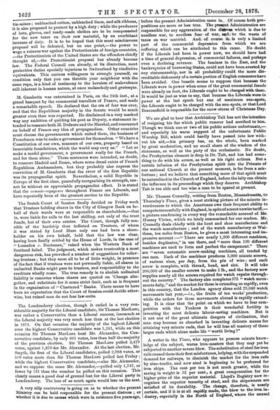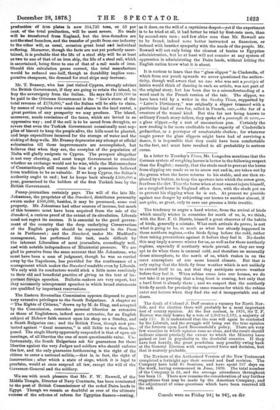A writer in the Times, who appears to possess minute
know- ledge of the subject, warns iron-musters that they may yet be subjected to another severe blow. The substitution of steel for iron rails caused them their first misfortunes, helping, with the suspended demand for railways, to diminish the market for the iron rails by nine-tenths, and now steel is beginning to be preferred for iron ships. The cost per ton is not much greater, while the saving in weight is 33 per cent., a great compensation for the higher price of the superior material. Lloyd's Registry now re- cognises the superior tenacity of steel, and the shipowners are satisfied of its durability. The change, therefore, is nearly certain, and if it is at all rapidly made, the blow to the iron in- dustry, especially in the North of England, where the annual
production cif iron plates is now 214,723 tone, or 52 per cent. of 'the total production, will be most severe. No trade will be thmsferred from England, but the iron-founders are not the steel founders, and the transfer of profit from one industry to the other will, as usual, occasion -great local aid individual suffering. Moreover, though the facts are not yet perfectly ascer- tained, it is probable that the life of a steel ship will be at least as two to one of that of an iron ship, the life of a steel rail, which is ascertained, being three to one of that of a rail made of iron. Should this calculation prove correct, the total manufacture would be reduced one-half, though as durability implies com- parative cheapness, the demand for steel ships may increase.



































 Previous page
Previous page